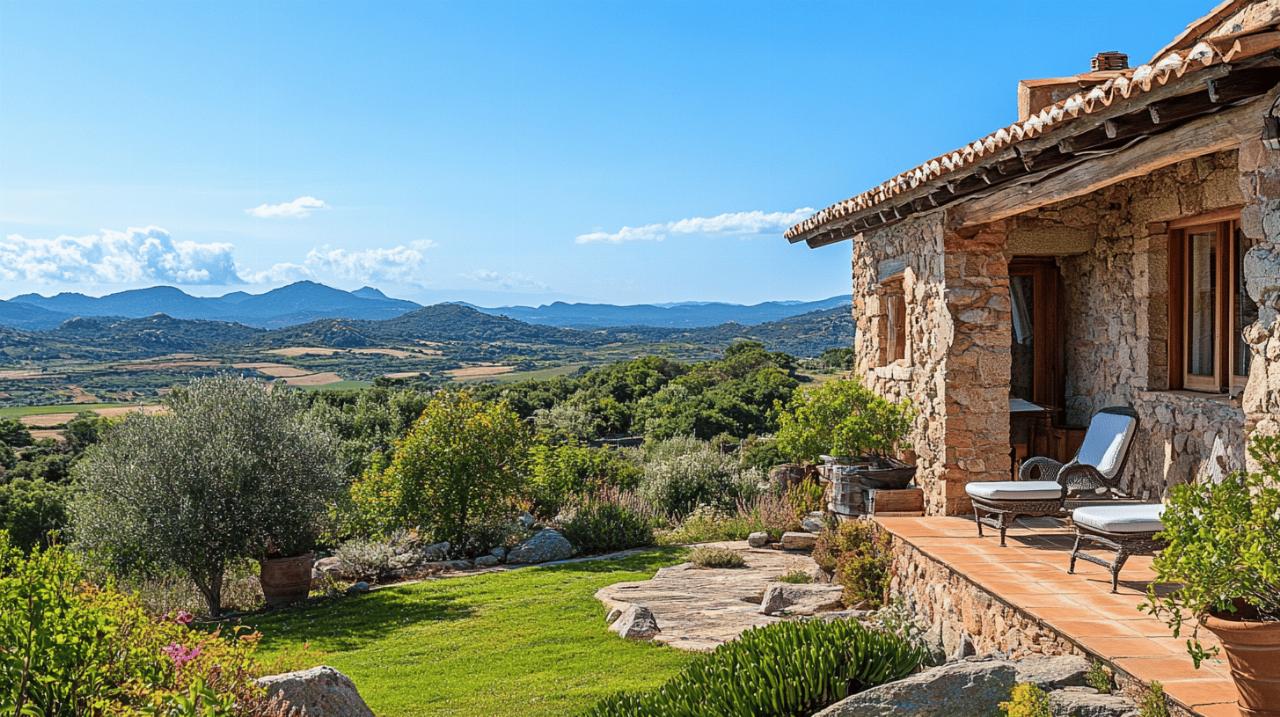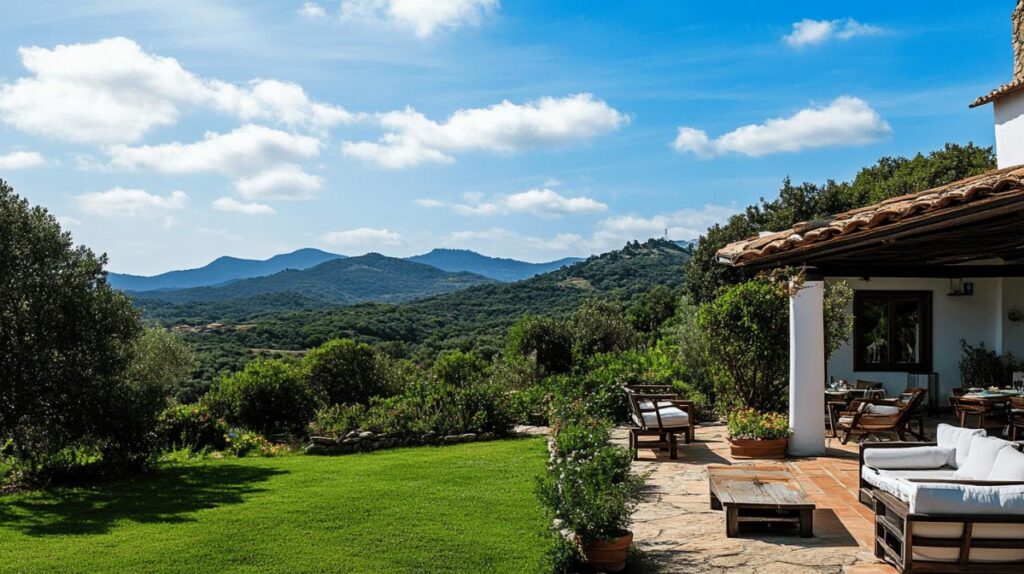Nestled in the heart of the Mediterranean, Sardinia offers travellers more than just stunning beaches and crystal-clear waters. This Italian island paradise harbours a secret treasure for the discerning tourist: traditional bed and breakfast establishments that capture the authentic essence of Sardinian culture and hospitality.
When exploring accommodation options in Sardinia, visitors quickly discover that the island's B&Bs stand apart from typical tourist lodgings found elsewhere in the Mediterranean. These intimate establishments, often converted from historic buildings or family homes, offer an immersive cultural experience that larger hotels simply cannot match. Safe Sardinia experiences begin with these carefully curated stays, where hosts pride themselves on creating environments that showcase the island's rich heritage while ensuring guests feel completely at home.
The landscape of Sardinian accommodation varies dramatically, from coastal retreats with sea views to rustic inland farmhouses surrounded by vineyards and olive groves. What unites these diverse properties is their commitment to authenticity and personal connection with guests. Most Sardinian B&Bs maintain fewer than ten rooms, allowing for attentive service that larger establishments cannot provide.
Family-owned establishments and their unique stories
Behind every traditional Sardinian bed and breakfast lies a family story worth discovering. Take Antica Locanda Lunetta, a charming establishment with just three meticulously designed rooms. The owners, typically multi-generational Sardinians, share tales of their ancestors while preparing local delicacies for breakfast. These narratives enrich the guest experience, transforming a simple stay into a meaningful cultural exchange.
Domu Antiga in Gergei Cagliari exemplifies this family-centred approach to hospitality. This rustic-chic B&B not only welcomes guests into spaces that feel like extensions of Sardinian homes but also offers cooking lessons where visitors learn traditional recipes passed down through generations. The property showcases how family traditions become part of the tourism experience, creating memories that endure long after guests return home.
Architecture and design elements reflecting island heritage
The physical structures of Sardinian B&Bs tell stories through their walls, furnishings, and decorative elements. Traditional accommodation often features distinctive architectural characteristics unique to the island, including stone-built exteriors, wooden beams, and interior courtyards that create natural gathering spaces.
B&B Cortis Antigas exemplifies this architectural heritage, situated in a historic village where every room contains carefully selected antique pieces. The property seamlessly blends historical elements with modern comforts, allowing guests to experience traditional Sardinian lodging without sacrificing contemporary amenities. Locally sourced materials dominate these spaces, from limestone walls to juniper wood furniture, connecting interiors directly to the Sardinian landscape.
The Place Cagliari occupies a 19th-century building in the old town, where original structural elements have been preserved and highlighted. This attention to architectural authenticity creates spaces that serve as living museums of Sardinian design traditions, educating visitors while providing comfortable accommodation.
Authentic sardinian hospitality experiences
 Beyond physical spaces, the true charm of Sardinian B&Bs emerges through the distinctive hospitality practices that owners embrace. Unlike standardised hotel services, these establishments offer deeply personalised experiences rooted in genuine care for guests. Hosts typically provide bespoke local recommendations, directing visitors to hidden beaches, family-run restaurants, and cultural sites that rarely appear in mainstream tourist guides.
Beyond physical spaces, the true charm of Sardinian B&Bs emerges through the distinctive hospitality practices that owners embrace. Unlike standardised hotel services, these establishments offer deeply personalised experiences rooted in genuine care for guests. Hosts typically provide bespoke local recommendations, directing visitors to hidden beaches, family-run restaurants, and cultural sites that rarely appear in mainstream tourist guides.
This personalised approach extends to every aspect of the guest experience, from check-in procedures that include welcome drinks featuring local wines to evening conversations where hosts share insights about island customs and festivities. Many establishments, like Hotel Villa Pimpina in Carloforte, organise local excursions tailored to guest interests, creating unique experiences impossible to replicate through standard tourism channels.
Morning rituals: traditional breakfast offerings
The breakfast experience at Sardinian B&Bs deserves special attention, as morning meals often become memorable highlights of a stay. Unlike continental breakfasts served at chain hotels, these morning feasts showcase Sardinian culinary traditions with locally sourced ingredients and homemade specialities.
Guests at establishments like Cento Ulivi might begin their day with freshly baked carasau bread, local cheeses including pecorino sardo, homemade preserves from fruits grown on the property, and pastries prepared according to recipes passed through generations. These morning meals often extend beyond mere sustenance to become social occasions where hosts share stories and offer suggestions for the day's adventures.
The setting for these breakfasts enhances the experience, whether served in sun-dappled courtyards at Casa Sadde or on terraces overlooking vineyards at Ledà d'Ittiri Winery near Alghero. The unhurried pace encourages conversation and connection, contrasting sharply with the rushed breakfast experiences common in larger tourism establishments.
Personal touches that create memorable stays
What ultimately distinguishes traditional Sardinian B&Bs from other Mediterranean getaways are the thoughtful details that hosts incorporate into every stay. At Albero Capovolto in Olbia, guests might discover handwritten notes detailing the history of their room, or receive surprise afternoon refreshments featuring local delicacies.
These establishments excel in creating environments where visitors feel less like tourists and more like welcomed friends. Hotel Lucrezia, a seven-room guesthouse with lovely grounds near beautiful beaches, demonstrates this philosophy through personalised welcome baskets containing local products and literature about the surrounding area. Staff members remember guest preferences from previous visits, creating continuity that encourages return visits.
The eco-conscious traveller finds particular satisfaction in properties like Is Cheas, where sustainability practices reflect traditional Sardinian respect for the natural environment. From water conservation systems to locally sourced furnishings, these establishments connect modern environmental concerns with historical island practices, creating accommodation that honours both heritage and future generations.

